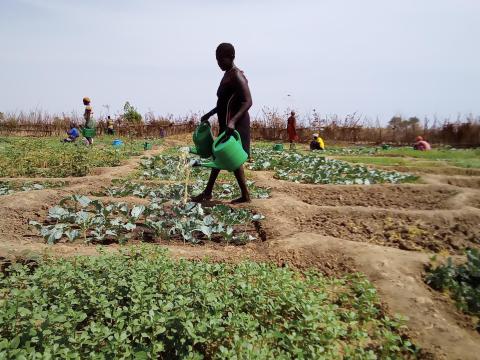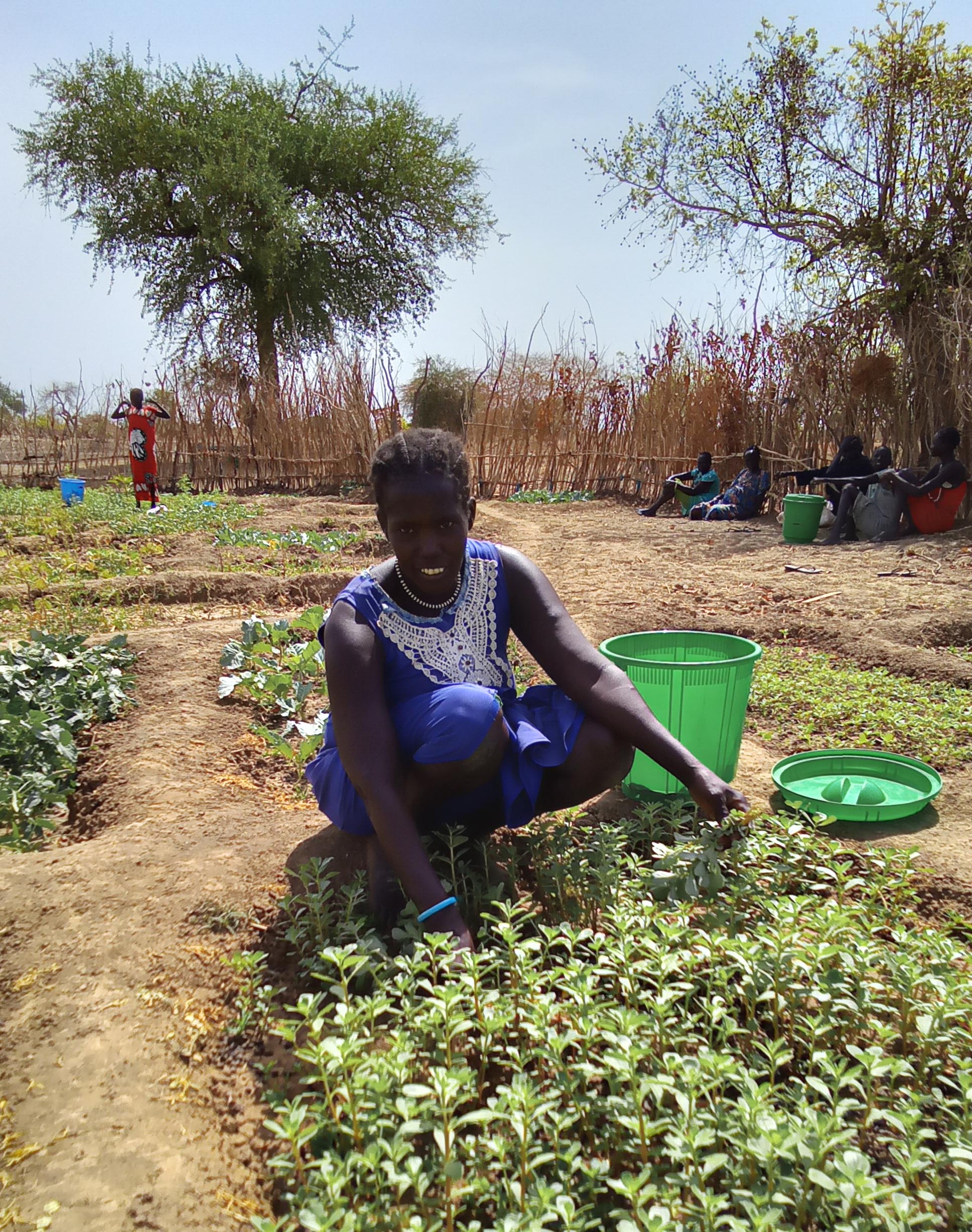South Sudan’s dry season vegetable production: A booster against malnutrition

In South Sudan’s Northern Bahr el Ghazal state, communities are able to grow crops even in the dry season, thanks to the dry season vegetable production, a project of World Vision supported by the German Federal Ministry for Economic Cooperation and Development of BMZ. The project employs the farmer field school approach, which aims to promote knowledge transfer and sustainable production among the local communities while incorporating the aspect of climate-smart agriculture for better adaptation to climate change impacts.
Mama Abuk Deng is in her early 30s and a native of Manyiel, a village in South Sudan’s Northern Bahr el Ghazal state. She has seven children. Her soldier husband had his limbs amputated due to the injuries incurred while on duty.
Because of her husband’s condition, Abuk had to step up to become the breadwinner of her family. So she took every work available to put food on the table for her kids and husband.
“During the dry season, my children and I collect firewood, even from the farthest ends of this village. We bundle the firewood we collected and carry those on our heads. I sell the firewood at a low price just so we can have something to eat for dinner,” she laments.
Like most families in Manyiel village, Abuk struggled to provide sufficient food for her family. Many families in their village barely eat one meal a day. Hence, it is common to see poorly nourished children and pregnant, lactating women in their community.
According to Abuk, she resorted to selling peanut paste to make both ends meet. Unfortunately, she could not sustain it because all her sales went to her family’s needs.
In efforts to support mothers like Abuk, World Vision, through the BMZ-funded Project, has provided farm tools and vegetable seeds to help build the resilience and food security of conflict-affected families and communities in Aweil East and Northern Bahr el Ghazal.
Abuk attests, “I am among the luckiest women in this village to be part of the farmer field school participants. I participated in training on good agriculture practices. The project supported me and the other participants with inputs such as farm tools and assorted vegetable seeds. I harvest fresh vegetables every day for my family’s consumption. Any surplus harvest is sold at Manyiel. I use the money I earn from selling vegetables to buy sorghum flour, soap, medication, and payment for school fees for my kids.”

The dry season vegetable production is part of World Vision’s farmer field school approach that aims to promote knowledge transfer and sustainable production among the local communities while incorporating the aspect of climate-smart agriculture for better adaption to climate change impacts.
“I cannot remember how much I have made throughout this period, but at least each day, I get SSP1,500 (US$ 1.6) to SSP2,000 (US$ 2.2) from selling vegetables,” Abuk shares, “I am so thankful to World Vision for the support. As a result, my children's health greatly improved. I wish more mothers like me, who have little or nothing at their respective families, and are still down there, benefit from this project.”
Story and photos: ©World Vision South Sudan